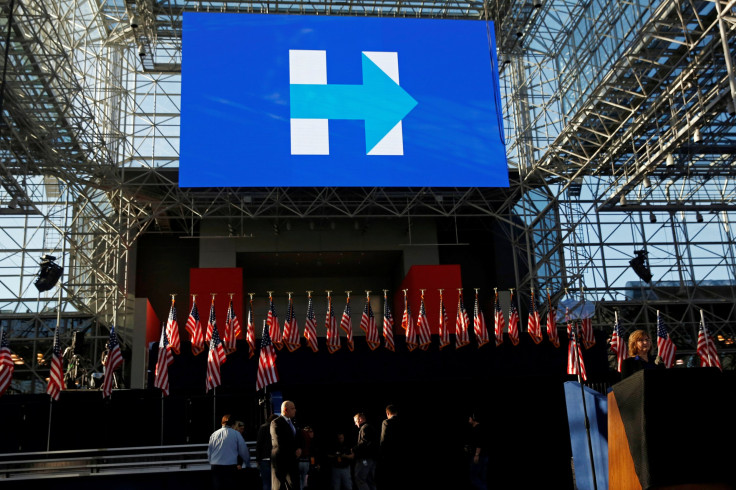Electoral College Map Update: Pollster Predicts Hillary Clinton Landslide, Winning All Swing States Except Iowa, Ohio

With the final round of public opinion polls Monday indicating Republican nominee Donald Trump and Democratic nominee Hillary Clinton within a few points one day before the election, Emerson College Polling predicted an Electoral College landslide for the former secretary of state.
A candidate needs 270 electoral votes to capture the presidency. Emerson pollsters predicted Clinton will garner 323 electoral votes compared to 215 for Trump.
Examining the results of polling in battleground states, the pollsters predicted Clinton will win Colorado, Florida, Michigan, Nevada, New Hampshire, North Carolina, Pennsylvania, Virginia and Wisconsin. Trump is projected to win Iowa and Ohio.
The analysis also considered the RealClear Politics average of major polls, which Monday indicated Clinton leads by 2.9 percentage points. All of the major polls except the Los Angeles Times/University of Southern California daily tracking poll indicated Clinton is ahead by as many as 7 points. The LA Times/USC poll, which consistently has shown Trump leading, indicates Trump is up by 5 points.
The Reuters/Ipsos poll released Monday gave Clinton a 45 percent to 42 percent lead, projecting she would win 303 electoral votes to 235 for Trump. The poll indicated for Trump to win, the real estate mogul would need a higher turnout among whites than in 2012 and a lower turnout for African-Americans.
Though winning the popular vote would give a candidate a mandate, the Electoral College tally is the one that counts. Until the results of that vote are certified by Congress, a president-elect cannot assume office.
Each state has a number of votes equal to the size of its congressional delegation — the number of members in the House of Representatives plus a vote for each state’s two senators. Except for Maine and Nebraska, the states award their electoral votes on a winner-take-all basis. Maine and Nebraska divide their votes by congressional district, with the winner of the popular vote taking the two senatorial votes.
A candidate can win the popular vote but still lose the electoral vote. That’s what happened in 2000 when Republican George W. Bush became president. Democrat Al Gore actually won the popular vote by more than 500,000 votes, piled up largely in urban areas, but was denied the presidency because of the Electoral College count. Bush received 271 electoral votes to 267 for Gore.
Counting the number of senators in each state’s electoral total gives smaller states a bigger say in the outcome than they otherwise would have.
© Copyright IBTimes 2024. All rights reserved.






















